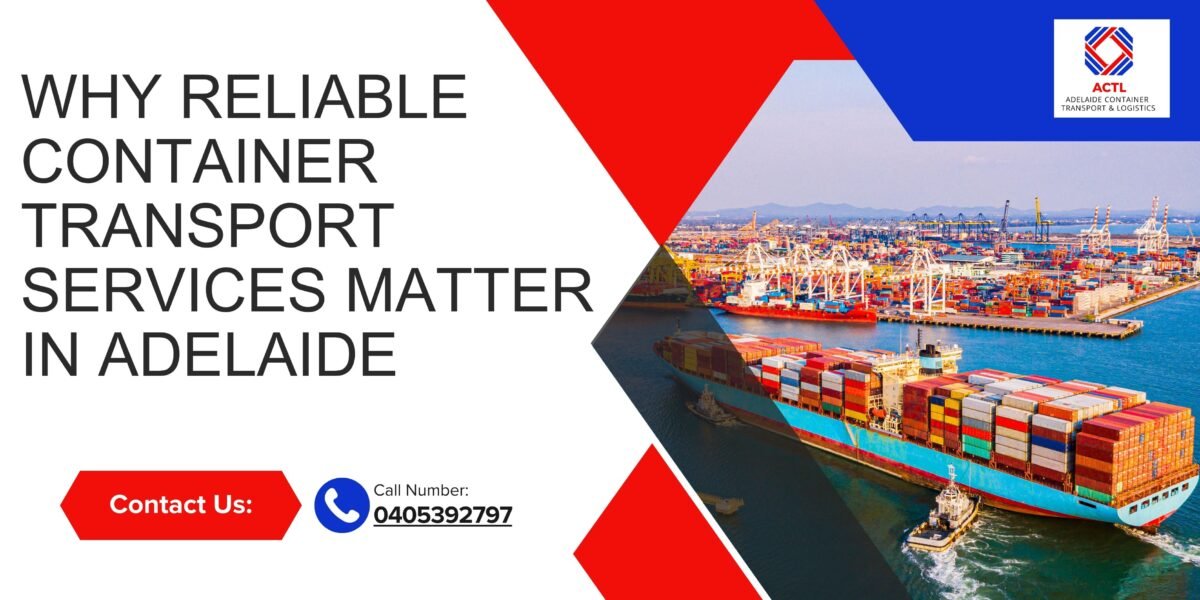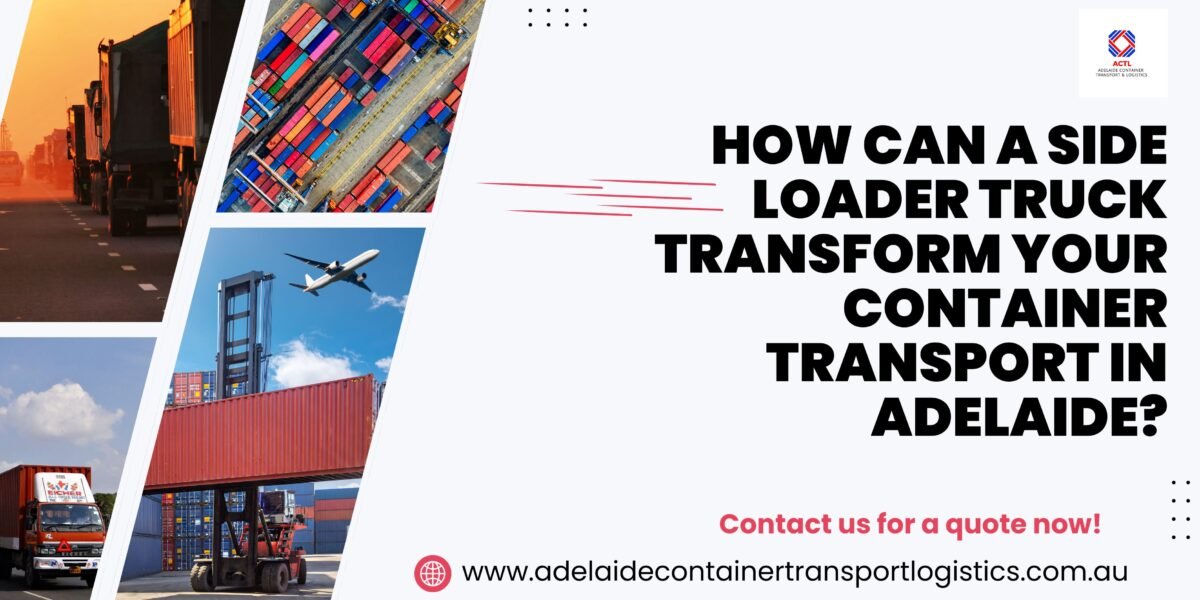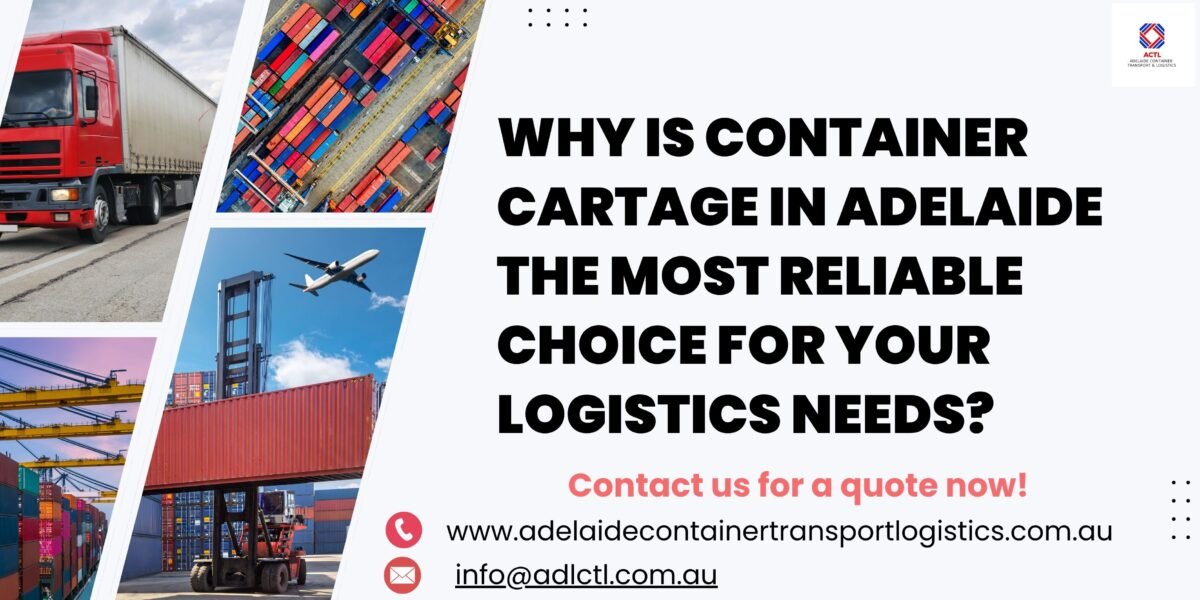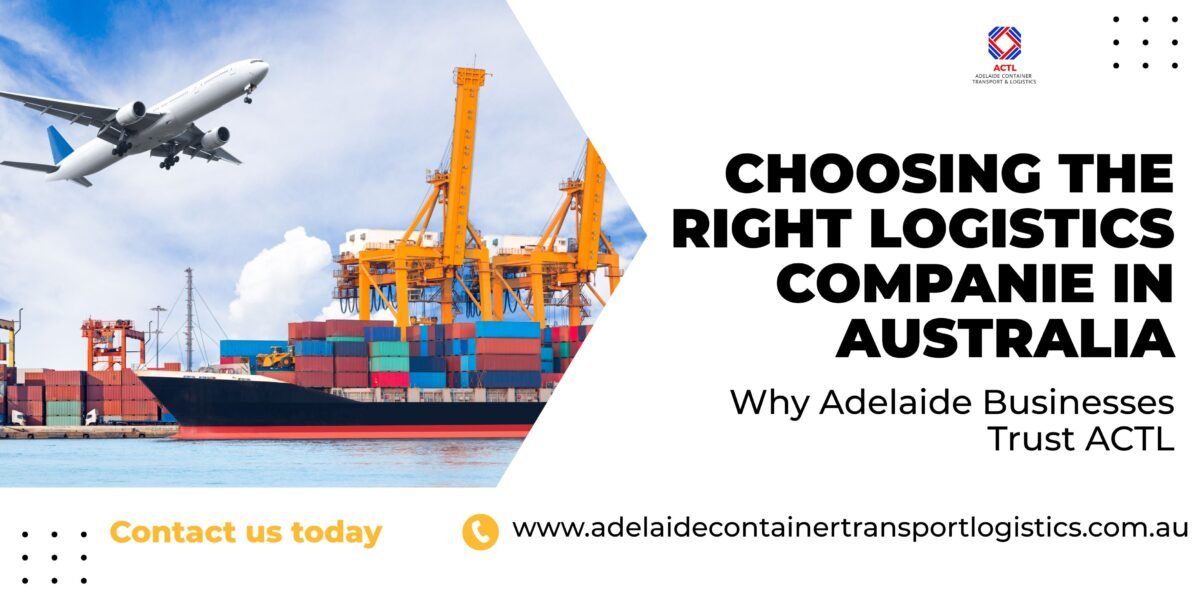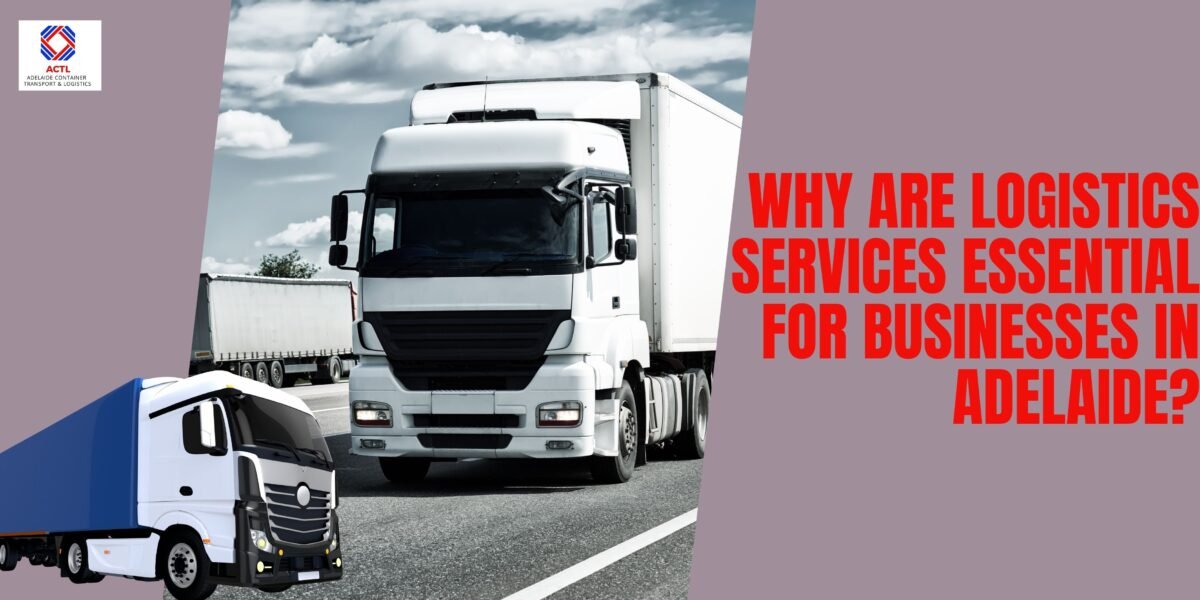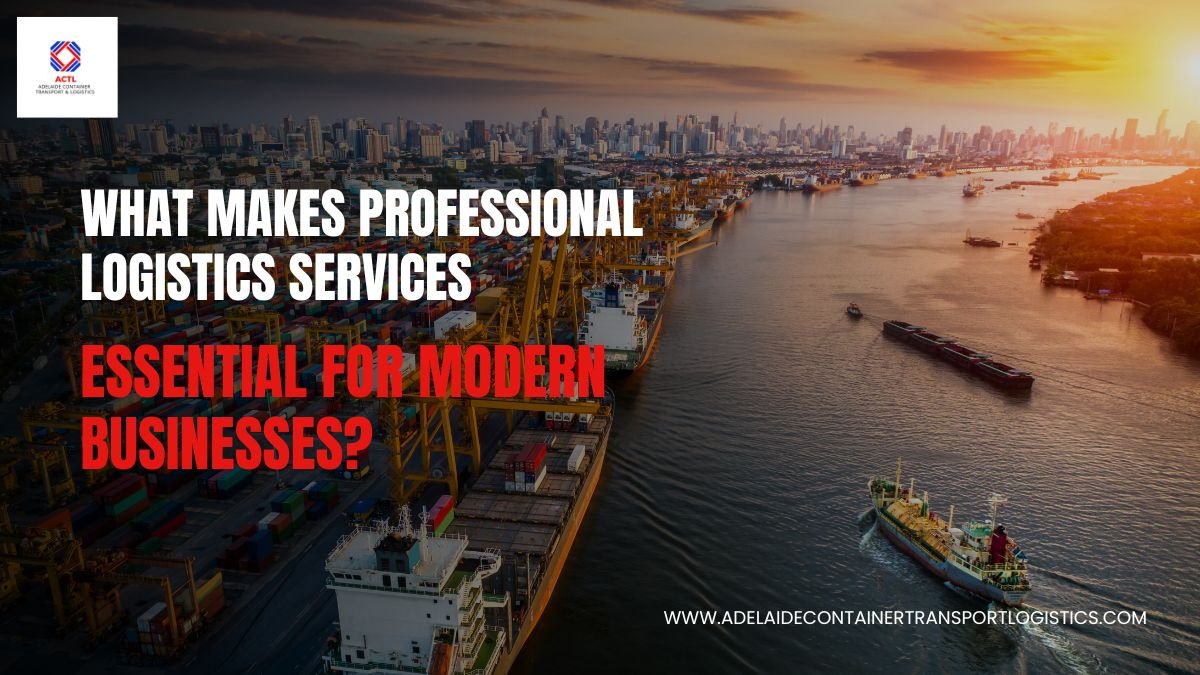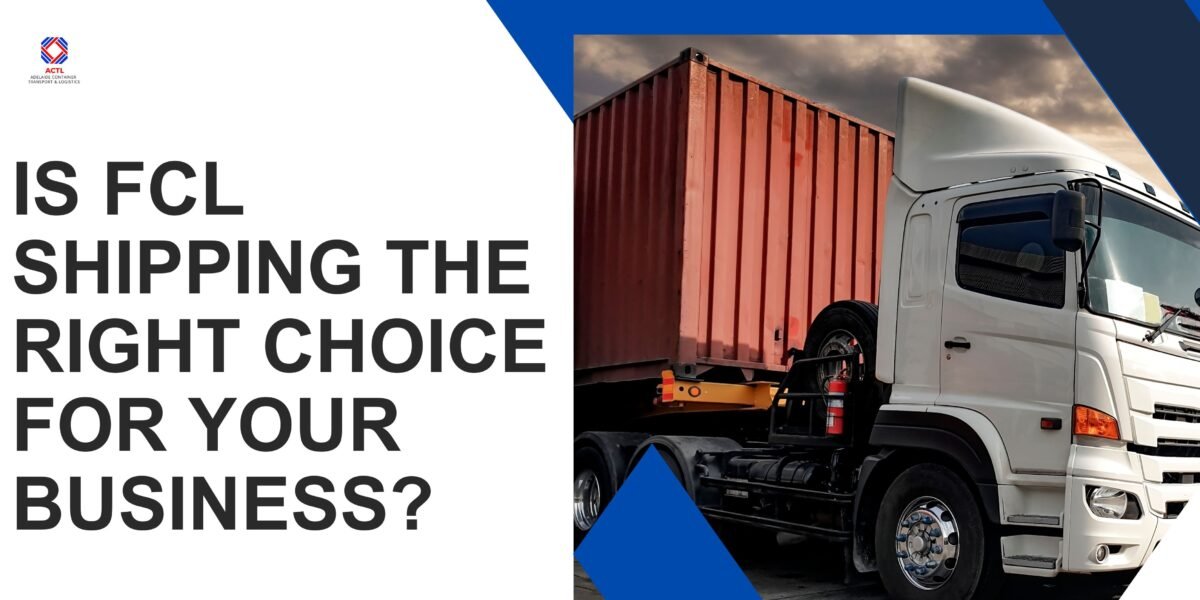In South Australia’s growing logistics landscape, businesses of all sizes rely on container transport to move goods securely, efficiently, and on time. Whether you’re importing goods via the Port of Adelaide, managing warehouse stock, or sending cargo across states, choosing…
